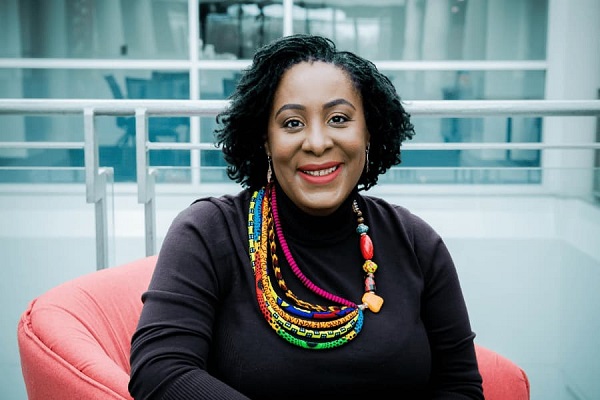By Gabriel Princewill-
Amazon executive chairman Jeff Bezos, (pictured)worth an estimated $131 billion, rightfully criticized a series of tweets by pathetic Carnegie Mellon linguistics, professor Uju Anya, in which the deranged minded scholar described the late Queen of England as the monarch of a “thieving raping genocidal empire” in a series of tweets on her death.
The pathetic attention seeking professor made the comments on social media in a hostile rant aimed at stirring emotions.
“I heard the chief monarch of a thieving raping genocidal empire is finally dying,” Uju Anya, an associate professor of second language acquisition at Carnegie Mellon University, wrote in a tweet on Thursday. “May her pain be excruciating.”
The world’s third-richest man then quoted Anya’s tweet and wrote: “This is someone supposedly working to make the world better?”
“I don’t think so,” Bezos added. “Wow.”
The distasteful comment about the 96-year-old monarch was made whilst she was under medical supervision at Balmoral Castle in Scotland, and less than an hour before Buckingham Palace officially announced that Queen Elizabeth had died at 96.
In follow-ups to her initial post elsewhere, the Carnegie Mellon professor attempted to defend her ill advised tweet in explicit terms.
After one Twitter user wrote, “Ewww you stink,” Anya responded: “You mean like your p—y?”
Anya also doubled down in a response to Bezos posted just minutes after Elizabeth’s death was confirmed, writing: “May everyone you and your merciless greed have harmed in this world remember you as fondly as I remember my colonizers.”
Twitter later took down Anya’s initial tweet for violating its rules, which bar “wishing or hoping that someone experiences physical harm.”
The twisted egotistic academic proceeded to elaborate on her warped diatribe in response to a question by a social media user as to why she harbours such malicious wishes on the queen.
She responded: “I’m not wishing her dead. She’s dying already. I’m wishing her an agonizingly painful death like the one she caused for millions of people.”
“If anyone expects me to express anything but disdain for the monarch who supervised a government that sponsored the genocide that massacred and displaced half my family and the consequences of which those alive today are still trying to overcome, you can keep wishing upon a star,” Anya added.
Ignorant Professor: Uju Anya Image:cmu.edu
The linguistics professor who was born in Nigeria, moved to the US when she was 10 and attended Dartmouth College, Brown University and the University of California, Los Angeles.
“Because of systemic exclusion, my voice is unique and foundational in the field,” Anya said in the Carnegie Mellon interview. “I am the main scholar looking at race and experiences of Blackness in language learning and one of the few who examine language education from a social justice perspective.”
The professor showed an alarming level of indiscretion in posting the offensive comments, seeking to gain attention in an ostensible bid to boost her credentials. In the process, she exposed a gaping level of knowledge about history, whilst boasting about being an important voice.
Many Cultures
The history of slavery spanned many cultures, nationalities and religions, from ancient times until the present day. Likewise, its victims have come from many different ethnicities and religious groups.
Slavery was worldwide, and pervasive, and was actively perpetrated by Africans too, after being complicit in other forms of slavery inflicted by various nations, including the British Empire.
The uninformed professor, whose pompous attitude avowedly precludes a rounded knowledge of history, appears to be oblivious of the fact slavery was endemic in Africa and part of the structure of continent’s everyday life throughout the 15th to the 18th century. “Slavery came in different guises in different societies: there were court slaves, slaves incorporated into princely armies, domestic and household slaves, slaves working on the land, in industry, as couriers and intermediaries, even as traders”, French historian Fernand Braudel noted in 1984.
Its reproachable practise was found in almost every ancient civilization, including Egypt and the Roman Empire. It was found in almost every ancient civilization, including the Roman Empire. Its proliferation was bated during the Early Middle Ages. Christians and Muslims captured and enslaved each other during centuries of warfare in the Mediterranean.
In the 16th century, European merchants initiated the transatlantic slave trade, purchasing enslaved Africans from West African kingdoms and transporting them to Europe’s colonies in the Americas. The transatlantic slave trade was eventually curtailed due to European and American governments passing legislation abolishing their nation’s involvement in it.
European involvement in the East African trade of enslaved people began when Portugal established Estado da Índia in the early 16th century.
The Atlantic slave trade peaked in the late 18th century when the largest number of people were captured and enslaved on raiding expeditions into the interior of West Africa. These expeditions were typically carried out by African states, such as the Bono State, Oyo empire (Yoruba), Kong Empire, Kingdom of Benin, Imamate of Futa Jallon, Imamate of Futa Toro, Kingdom of Koya, Kingdom of Khasso, Kingdom of Kaabu, Fante Confederacy.
Integral Role
As difficult and bitter a pill it may be to swallow, African states played an integral role in the trade of enslaved people, and slavery was a common practice among Sub Saharan Africans even before the involvement of the Arabs, Berbers and Europeans. Chieftains would barter their enslaved people to Arab, Berber, Ottoman or European buyers for rum, spices, cloth or other goods.
Slavery in historical Africa was practised in many different forms: Debt slavery, enslavement of war captives, military slavery, slavery for prostitution, and enslavement of criminals were all practised in various parts of Africa
The goal of slavery was capitalism and global economic dominance, though racism was a byproduct of its evil practise in many third world countries. It spread across the globe for centuries and continues until this day. Several African countries were not only complicit in slavery, they were also active perpetrators of it.
In the slave colonies, opposition to slavery was perceived to be a revolutionary threat to the social order. In Britain, antislavery affirmed Britain’s superior virtue in relationship to its empire.
Although Britain and many European countries may have benefited more from slavery than other countries, not may countries can claim to have been innocent of it during this dark period of history.
In the slave colonies, opposition to slavery could be a revolutionary threat to the social order. In Britain, antislavery affirmed Britain’s superior virtue in relationship to its empire.
QueenElizabeth I granted a royal charter (an instrument of incorporation) to Sir John Hawkins, widely considered one of the first English traders to profit from the slave trade. She also granted a charter to the British East India Company in 1600
The British monarchy was truly central to the establishment, expansion, and maintenance of the British empire and the transatlantic slave trade. The declaration of English empire was first made by Henry VIII in 1532.
The fact remains that many countries benefited from slavery, some much more than others, and to the detriment of some countries more than others.
Sober reflection and roper assessment in pursuit of unity and redressal of some of its harms across the globe is what is needed, not the reckless show of indiscretion for attention at a time of grieving for the world.




